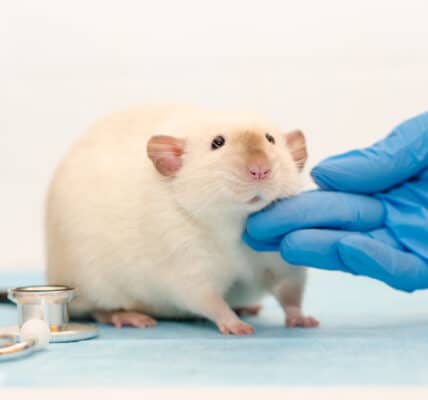New Research Into the Use of Oxytocin in the Treatment of Addiction

The human mind is a mysterious place. Tracing the path of motivation, rewards, stress, learning, memory, and behavior seems impossibly complex. Here at AddictionNews, we have covered many human brain studies and animal brain studies that attempt to track hormones and chemicals as they move throughout the body and the brain. Sometimes they lead to addiction and sometimes to relief from addiction.
One of the issues we have not covered before is the interaction of the hormone, oxytocin, with the cycles of addiction and recovery. Oxytocin is produced in the hypothalamus, a region of the brain, and secreted from the pituitary gland. Oxytocin is known as “the love hormone” because, according to WebMD:
It is the hormone responsible for contractions during labor, for breast milk letdown (when your body releases milk while breastfeeding), and for erection and orgasm. It’s also responsible for positive emotions like trust and happiness.
Oxytocin interferes with stress, according to studies, with levels rising with pain or restraint. It may help block the pain and keep the nervous system going in a crisis rather than shutting down. An Italian study found oxytocin levels diminished in patients suffering from post-traumatic stress disorder (PTSD). In 2022, Polish researchers found that the use of an oxytocin nasal spray relieved some of the symptoms of patients with PTSD, including:
- reduction in symptoms of depression
- reduction in symptoms of anxiety
- modification of the sympathetic system
- consolidation of memory pathways
- “fear extinction”
The researchers concluded, “The nasal spray form of oxytocin administration can affect crucial brain structures from a mental health perspective.”
Brand new research from the University of Science & Technology of China establishes a link between oxytocin levels and nicotine use disorder. Groups of 26 chronic cigarette smokers and 27 nonsmokers were given a randomly-assigned oxytocin nasal spray or a placebo nasal spray. They then completed the Montreal Imaging Stress Task while being monitored with magnetic resonance imaging (MRI). The result:
In smokers, oxytocin failed to suppress the elevation of subjective stress and craving ratings after psychosocial stress.
Said another way, the oxytocin nasal spray reduced stress and cravings ratings for nonsmokers, but not for smokers. Furthermore, the researchers went on to conduct transcranial direct current stimulation on 22 volunteer smokers and found it restored the previously missing reductions in cravings and stress for smokers given the nasal oxytocin.
The researchers concluded:
[W]e found that nicotine addiction blocked oxytocin’s anxiolytic on psychosocial stress, which was related to abnormalities in anterior right superior temporal gyrus. By applying anodal transcranial direct current stimulation on anterior right superior temporal gyrus, oxytocin’s anxiolytic effect was restored in smokers.
There is no indication in the nicotine study of the duration of the oxytocin increase in the ability to handle stress, nor of any side effects of oxytocin nasal sprays. Another study from Italy in 2021 looked at the use of oxytocin in the treatment of addiction and found, similarly to the nicotine study, that oxytocin was particularly helpful in the prevention of relapse.
Finally, in a clinical and preclinical review from the Shenyang Pharmaceutical University in China, researchers found some pretty remarkable results from using oxytocin in the treatment of substance use disorders:
Overall, oxytocin not only suppresses drug reward in the binge stage of drug addiction, but also reduces stress responses and social impairments during the withdrawal stage and, finally, prevents drug/cue/stress-induced reinstatement.
The researchers found this to be true across a wide range of addictive substances, including opioids, methamphetamine, nicotine, cannabis, alcohol, and cocaine. Once again, the duration of this impact from an oxytocin nasal spray is not mentioned, nor are the side effects. A 2011 review of the safety and side effects of oxytocin nasal spray in 38 randomized, controlled trials found no ability for participants to distinguish between the spray and a placebo.
I find this information regarding oxytocin intriguing and perplexing. If oxytocin reduces all the symptoms for a wide range of substance use disorders – and has no measurable side effects in dozens of studies going back decades — why isn’t it on every doctor’s desk and stocked in every medicine cabinet? I will try to get to the bottom of this in a future edition of AddictionNews.
Written by Steve O’Keefe. First published September 4, 2024.
Sources:
“The interaction of oxytocin and nicotine addiction on psychosocial stress: an fMRI study,” Translational Psychiatry, August 2024.
“What to Know About Oxytocin Hormone,” WebMD Health & Sex Guide, July 12, 2023.
“Decreased Plasma Oxytocin Levels in Patients With PTSD,” Frontiers Psychology, June 2021.
“Progress in Personalized Psychiatric Therapy with the Example of Using Intranasal Oxytocin in PTSD Treatment,” Journal of Personalized Medicine, June 2022.
“The potential role of oxytocin in addiction: What is the target process?,” Current Opinion in Pharmacology, June 2021.
“Oxytocin signaling in the treatment of drug addiction: Therapeutic opportunities and challenges,” Pharmacology & Therapeutics, July 2021.
“A review of safety, side-effects and subjective reactions to intranasal oxytocin in human research,” Psychoneuroendocrinology, September 2011.


